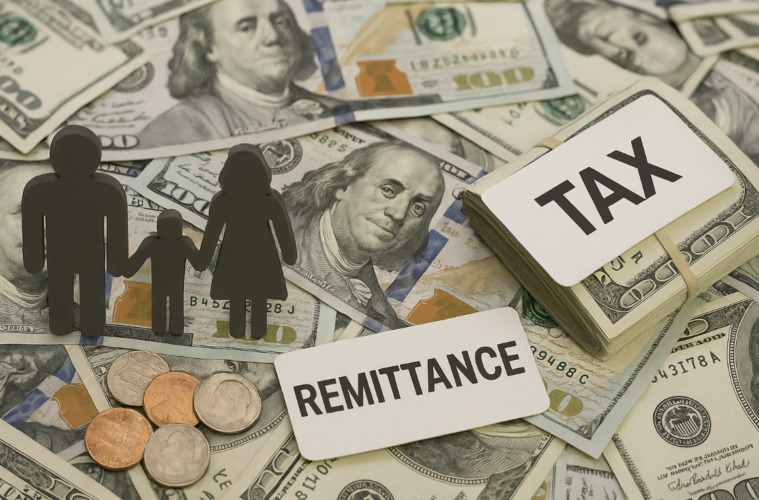If you send money to family overseas — or rely on someone who does — you need to pay attention. A 3.5% tax on remittances quietly nestled into President Donald Trump’s proposed spending package could hit working families the hardest.
In a June 6 media briefing hosted by American Community Media, experts warned that the proposed remittance tax could disrupt daily survival for millions around the globe and trigger serious consequences here in the U.S.
“This isn’t just bad policy — it’s a penalty on the American Dream,” said Ana Valdez, President of the Latino Donor Collaborative. “Immigrants are the backbone of the economy, and this tax punishes the poorest among us who are already paying taxes.”
Valdez explained that families are already adjusting their habits in anticipation of the tax. “Mothers are saying, ‘My mom’s going to get her $1,000 every month no matter what — even if I have to stop going to the movies or buying new clothes,’” she said. “That means less money spent here in the U.S., and it drags down the economy.”
The tax, if enacted, would apply to non-citizens sending money internationally — a demographic that includes many women working as caregivers, domestic workers, and service industry employees. The proposal would require remittance agencies like Western Union and banks to verify a sender’s immigration status, raising alarm over privacy and access.
“This opens a serious security risk,” said Dr. Manuel Orozco, a senior fellow at Harvard. “It’s not just immigrants — even U.S. citizens would be required to prove their status to avoid the tax. No one carries around a passport or naturalization certificate.”
And the damage isn’t theoretical. Helen Dempster of the Center for Global Development laid out the real-world impact. “We estimate that the remittance tax will lead to a 5.6% drop in sending,” she said. “For countries like El Salvador and Liberia, where remittances make up over a quarter of GDP, this is devastating.”
What does that mean for the women receiving this money? Less food, less access to medical care, and less ability to educate children or escape domestic violence. “Remittances are often used to support women left behind,” Dempster said. “This tax disproportionately hurts them.”
With the potential for families to seek informal — and riskier — ways of transferring money, the consequences could be life-threatening. “People might give their cash to a U.S. citizen to send, or carry money across borders,” said Ruiz Soto. “That puts women and children in danger, especially in places like Mexico where cartels exploit these routes.”
Despite the dire projections, few lawmakers seem aware of what’s buried in the bill. “Many members of Congress didn’t even know this tax was in there,” said Dr. Orozco. “It’s critical we shine a light on this now — before it becomes law.”
For now, Valdez says women should stay informed and get involved. “Call your senator. Tell your story. These policies don’t just happen in a vacuum — they happen because we’re not paying attention,” she said. “And when we pay the price, it’s often our families that suffer first.”

